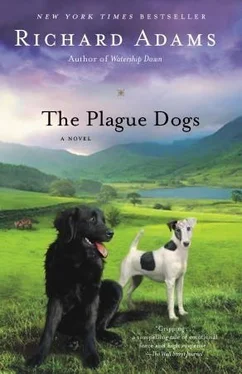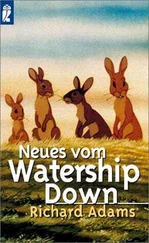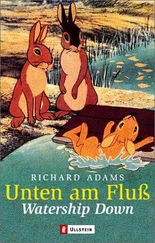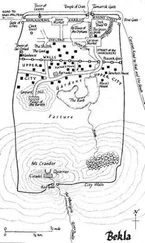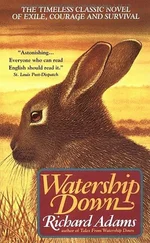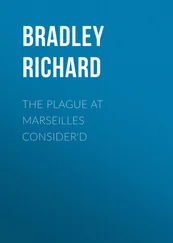Richard Adams - The Plague Dogs
Здесь есть возможность читать онлайн «Richard Adams - The Plague Dogs» весь текст электронной книги совершенно бесплатно (целиком полную версию без сокращений). В некоторых случаях можно слушать аудио, скачать через торрент в формате fb2 и присутствует краткое содержание. Город: New York, Год выпуска: 2007, ISBN: 2007, Издательство: Ballantine Books, Жанр: Природа и животные, Фэнтези, на английском языке. Описание произведения, (предисловие) а так же отзывы посетителей доступны на портале библиотеки ЛибКат.
- Название:The Plague Dogs
- Автор:
- Издательство:Ballantine Books
- Жанр:
- Год:2007
- Город:New York
- ISBN:978-0-345-49402-3
- Рейтинг книги:3 / 5. Голосов: 1
-
Избранное:Добавить в избранное
- Отзывы:
-
Ваша оценка:
- 60
- 1
- 2
- 3
- 4
- 5
The Plague Dogs: краткое содержание, описание и аннотация
Предлагаем к чтению аннотацию, описание, краткое содержание или предисловие (зависит от того, что написал сам автор книги «The Plague Dogs»). Если вы не нашли необходимую информацию о книге — напишите в комментариях, мы постараемся отыскать её.
, Richard Adams creates a lyrical and engrossing tale, a remarkable journey into the hearts and minds of two canine heroes, Snitter and Rowf, fugitives from the horrors of an animal research center who escape into the isolation—and terror—of the wilderness.
The Plague Dogs — читать онлайн бесплатно полную книгу (весь текст) целиком
Ниже представлен текст книги, разбитый по страницам. Система сохранения места последней прочитанной страницы, позволяет с удобством читать онлайн бесплатно книгу «The Plague Dogs», без необходимости каждый раз заново искать на чём Вы остановились. Поставьте закладку, и сможете в любой момент перейти на страницу, на которой закончили чтение.
Интервал:
Закладка:
“Which way?”
“Any,” answered Snitter, “as long as we’re well away from here by daylight.”
A quick run past the rabbits’ execution shed, a turn round the kittens’ quicklime pit, a moment’s hesitation beyond the monkeys’ gas-chamber—and they are gone: ay, not so long ago these canines fled away into the storm. It would be pleasant to report that that night Dr. Boycott dreamt of many a woe, and all his whitecoat-men with shade and form of witch and demon and large coffin-worm were long be-nightmared. One might even have hoped to add that Tyson the old died palsy-twitched, with meagre face deform. But in fact—as will be seen—none of these things happened. Slowly the rain ceased, the grey rack blowing away and over Windermere as first light came creeping into the sky and the remaining inmates of Lawson Park awoke to another day in the care and service of humanity.
FIT 2
Saturday the 16th October
Freedom—that consuming goal above doubt or criticism, desired as moths desire the candle or emigrants the distant continent waiting to parch them in its deserts or drive them to madness in its bitter winters! Freedom, that land where rogues, at every corner, cozen with lies and promises the plucky sheep who judged it time to sack the Shepherd! Unfurl your banner, Freedom, and call upon me with cornet, flute, harp, sackbut, psaltery, dulcimer and all kinds of music to fall down and worship you, and I will do so upon the instant, for who would wish to be cast into the fiery furnace of his neighbours’ contempt? I will come to you as the male spider to the female, as the explorer to the upper reaches of the great river upon which he knows he will die before ever he wins through to the estuary. How should I dare refuse your beckoning, queen whose discarded lovers vanish by night, princess whose unsuccessful suitors die at sunset? Would to God we had never encountered you, goddess of thrombosis, insomnia, asthma, duodenal and migraine! For we are free—free to suffer every anguish of deliberation, of decisions which must be made upon suspect information and half-knowledge, every anguish of hindsight and regret, of failure, shame and responsibility for all that we have brought upon ourselves and others: free to struggle, to starve, to demand from all one last, supreme effort to reach where we long to be and, once there, to conclude that it is not, after all, the right place. For a great price obtained I this freedom, to wish to God I had died by the hand of the Lord in the land of Egypt, when I sat by the fleshpots and ate bread to the full. The tyrant wasn’t such a bad old bugger, and even in his arbitrary rages never killed as many as died in yesterday’s glorious battle for liberty. Will you return to him, then? Ah no, sweet Freedom, I will slave for you until I have forgotten the love that once consumed my being, until I am grown old and bitter and can no longer see the wood for the starved, dirty trees. Then I will curse you and die; and will you then concede that I may be accounted your loyal follower and a true creature of this Earth? And, Freedom, was I free?
Far away, east beyond Esthwaite Water, Sawrey and Windermere, the sun, from between low streaks of cloud, shone its first, pale rays across the woodland and bleak moor of Grizedale Forest. Already the buzzards were aloft, watching for prey, ready to tempest and tear any creature too slow or weak to escape or defend itself. Before their eyes opened, under the sunrise, the immense western prospect; the hyaline expanse of Coniston Water, five miles from School Beck to High Nibthwaite, lined along its western shore with caravans-orange, white and blue; and beyond, the little town of Coniston itself, grey against surrounding fields and autumn-leaved woods. Behind stretched the Coniston fells, over which, as the sun rose higher, the cloud shadows would flow with a pace smooth and unaltering, like that of ships upon a deep sea. More than four miles away, closing the horizon, rose the Coniston range—Caw, Torver High Common, Walna Scar, Dow Crag, Old Man, Brim Fell and Swirral; highest of all, the Old Man appeared from the east as a sharp peak tilted to the right, its eastern face streaked with the broken, white thread of a falling beck.
Half a mile north of Lawson Park, Monk Coniston Moor rises, hillocked and undulant, above the oak woods below. An old, dry-stone hoggus (or hog-house—a “hog” being, in the Lakeland, the ovine equivalent of a bullock) stands, half-ruined, beside a stream, and a rowan lays its pliant branches and thirteen-leafleted sprays across the roof-slates. To one walking over the Forest from Hawkshead to Nibthwaite, or from Satterthwaite to How Head, one lonely knoll surmounted discloses another, all the way up to the watershed, and little moves but the falling becks, and grey sheep that start in alarm out of the fern and go bucketing away from intruders, whether human or animal: the proper landscape to lie drenched beneath a silver dawn, low clouds and an east wind in October.
Here, among the dripping grasses and spongy, sodden mounds of moss, Rowf and Snitter lay gazing in astonishment and dismay as first light made plain the emptiness about them.
“It can’t be the whitecoats,” said Snitter desperately. “Not a house, not. a lamp-post, not a fence—it’s not natural! Not even the whitecoats could—” He broke off and once more raised his head to the wind. “Tar—there was—yes—for a moment—but faint. And the dustbins gone—every single one—it’s not possible!”
A cock chaffinch, slate-blue-capped and rosy-breasted, fluttered across a wall with a flash of white wing feathers. Snitter turned his head for a moment, then let it fall once more upon his outstretched front paws. “And no men anywhere—so why make it?—and all that sky, how can it ever stop raining? Rowf? Rowf, come back!”
Rowf opened his eyes, his upper lip curling as though in anger. “What?”
“What’s to be done?”
“How the death should I know?”
“They’ve taken everything away, Rowf—the houses, the roads, cars, pavements, dustbins, gutters—the lot. How on earth can they have done it? I tell you it’s not possible! And where have they all gone? Why make all this—make it and then go away—why?”
“I told you,” said Rowf.
“What did you tell me?”
“The world, I said. I told you it would be the same outside the pens. There isn’t any outside. You say it’s been altered, so the whitecoats—or some men, anyway—must have altered it so that they could do something or other to some animals. That’s what animals are for, to have things done to them by men. It’s what men are for, too, come to that—to do the things, I mean.”
“But Rowf, my master—my master never used to do anything to animals. When I was at home with my master—”
“He must have, else he couldn’t have been a man.”
“But how could they have taken away the streets and houses and made all this?”
“They can do anything. Look at the sun up there. Obviously some man must once have put up his hand to light it, same as the tobacco man does in the dog-shed. But you wouldn’t believe it unless you’d actually seen the tobacco man do it, would you?”
Snitter was silent, shivering in the wind. The whole expanse of the fell was now light, heather and grass flashing with raindrops in the fitful sunlight breaking here and there through the clouds. The long call, like human laughter, of a green woodpecker sounded from the woodland below them.
“We’ve got to find some men,” resumed Snitter at length.
“Why?”
“Dogs have to have men. We need masters. Food, shelter. Come on! We can’t stay here. The whitecoats’ll be looking for us.”
Читать дальшеИнтервал:
Закладка:
Похожие книги на «The Plague Dogs»
Представляем Вашему вниманию похожие книги на «The Plague Dogs» списком для выбора. Мы отобрали схожую по названию и смыслу литературу в надежде предоставить читателям больше вариантов отыскать новые, интересные, ещё непрочитанные произведения.
Обсуждение, отзывы о книге «The Plague Dogs» и просто собственные мнения читателей. Оставьте ваши комментарии, напишите, что Вы думаете о произведении, его смысле или главных героях. Укажите что конкретно понравилось, а что нет, и почему Вы так считаете.
